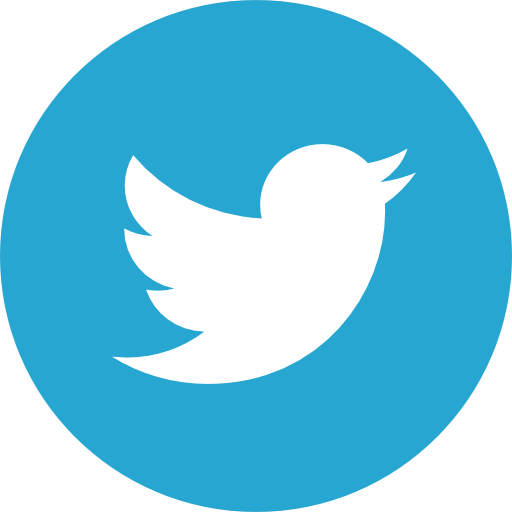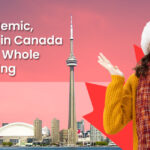When one thinks of moving to a foreign country for education or work, Canada is usually among the top three destinations in the list, and rightly so. This country is widely known for its immigrant-friendly policies. In fact, even amidst the pandemic, the Justin Trudeau government announced more study and work permit flexibility for foreign students and individuals alike. This has served as further encouragement for students pursuing higher studies at the top-notch education facilities offered in Canada.
In 2019, Canada admitted 341,180 permanent residents and despite the pandemic, immigration to Canada continues to go strong.
Anyone thinking of moving to Canada should be aware of some things that are quiet unique to this country. This country with its serene natural beauty and cultural diversity can be extremely enjoyable but like any new location, it can take a little getting used to.
Weather – Freezing Temperatures
We all know ice hockey is official national winter sport of Canada and people here are obsessed with it. But did you know there is something called ‘pond hockey’? Yes, its informal ice hockey played among friends and family on frozen lakes and ponds, instead of professional ice rink.
It’s no surprise that these games are so popular in Canada. Not only does the country have more lakes than rest of the world put together and it is also prone to extremely cold temperatures. The frozen lakes have become a natural setting for recreational activities.
Winters can be long yet beautiful and snowy here. Depending on where you are, the temperatures can go as low as -40 °C or more. Snowfall is abundant, and it is common to wake up to knee-deep snow especially in the central and northern parts of the country. You would do well to do ample research and find out what winters are like in the region you are moving to. It is best to purchase winter wear specifically meant for Canadian winters.
Don’t be scared though and wrap yourself up in layers. Enjoy the new experiences and give pond hockey a shot. Chances are there’s a frozen lake right around the corner from your place.
Summers are quite tolerable while spring and fall are short and breathtaking. Go sight-seeing and enjoy the sublime natural beauty of this country.
Cost of Living – Housing & Health Insurance
It is more likely that the cost of living in Canada will be higher than your home country. However, no matter what part of the country you are in, the amount may not vary too much.
Most people spend 35% to 50% of their income on housing. Renting a room or a home can cost anywhere between $300 and $2500 per month, depending on the city and location. Utilities like water, electricity and such in most cases will be an additional cost.
Canada has very good health insurance policies. As a newcomer, it is preferable that you have travel insurance that covers three months in the very least. During these months you should check with local authorities regarding health insurance policies you may be eligible for.
Many families do own a car but most people use public transport since it’s fairly reasonably priced. You can also consider leasing a car since the cost of leasing vs. buying a car is more or less the same.
Keep In Touch
It is important to have some means of communication available from the moment you land in Canada. It is not practical if you have to go searching for a SIM and cellphone plan as soon as you arrive. This can take some time and effort.
It is advisable that you carry with you a SIM with foolproof plan that will activate before you land in Canada. Landing in a new country with a bag-full of ambition can be daunting, especially if you have no means of communicating with your family.
In this phase, most important moral support available to you is that of your loved ones back home. Having a reliable way to talk to them whenever you feel like it is more a necessity than anything else. More importantly, with many universities and schools still operating remotely in Canada, having a robust data plan on your phone can make sure you are not missing out on your education.
Multiculturalism & Language
When a country is so keen on inviting immigrants, it is natural for it to have an incredible diversity of cultures and ethnicities. It is expected that by 2031 more than 50% of Canadians would have been born in a different country. There are more than 200 nationalities and 250 ethnicities across the country. In fact, it is said that you will find a person from every country in the world on the streets of Toronto.
As for languages, English and French are Canada’s two official languages. For most part people speak English while French has seen a decrease in popularity. Eastern regions of the country though are making sustained efforts to encourage the use of the French language.
Do’s & Don’ts While in Canada
Saying Thank You: Canadians haven’t gained the reputation of being the most polite people in the world for nothing. Harsh tones and verbal bashing, ‘making a scene’ as they say, is strictly frowned upon. The words ‘sorry’ and ‘thank you’ area staple of Canadian communication. Politeness is prima facie.
Tipping: Make it a habit to be generous with tips to the staff. It is likely that the staff that serves you has to share their tips with the other employees. This may not seem fair to you, but it might be case at many businesses. Usually 15% to 20% of the total bill would be appropriate.
Some Uniquely Canadian Things
Timmies: One thing you will see everywhere in Canada is the multi-national fast food chain Tim Hortons. Often referred to as Timmies, it is the nation’s favorite coffee place. Moreover, it also serves doughnuts and other fast food items.
Poutine: This is Canada’s national dish. It is crispy fries drenched in gravy and melted cheese, and is absolutely scrumptious. It is usually a dish that is made as per the person’s taste, so the toppings vary greatly. Many international chains like Burger King have added this dish to their menu, owing to its popularity.
Maple Syrup: It’s not for nothing that maple leaf finds its place on Canada’s national flag. Maple trees are found all over the country and from these trees is extracted the sweet and sugary maple syrup. Pancakes are good but Canadians are known to pour this sugary goo on just about anything including yogurt and fries. Canada produces 71% of the world’s maple syrup but the US is their biggest customer.
Furry Friends: You will be pleasantly surprised to see cute beavers and giant squirrels running around freely in the country. After all, beavers are Canada’s national mascots. These two not-so-little animals can be found everywhere – in backyards, in the streets, in college campus and so on. To avoid road accidents, these animals, in many regions, have dedicated lanes that are usually covered with green grass and small plants.
Weirdly Named Places: When you hear the names of some places or what they are called locally, you are bound to have a good laugh. There is a place called Ball’s Falls in Ontario, while Newfoundland has Dildo. There is also something called Crotch Lake. If that was not enough, Nova Scotia has Lower Economy and Mushaboom. In Quebec there is Saint-Louis-du-Ha! Ha! There is no shortage of interestingly named places in the country and if you are lucky, you might even have the opportunity to live at one of these locations.
Canada offers massive opportunities and welcomes immigrants from all over the world with open arms. So, dig deep and be prepared for the challenges this country will bring with it. And when work gets too much, take some time out to explore the charms and novelties of this country. But with all the amazing facilities the country offers, do not forget to have your Canadian SIM card handy before you land there.















